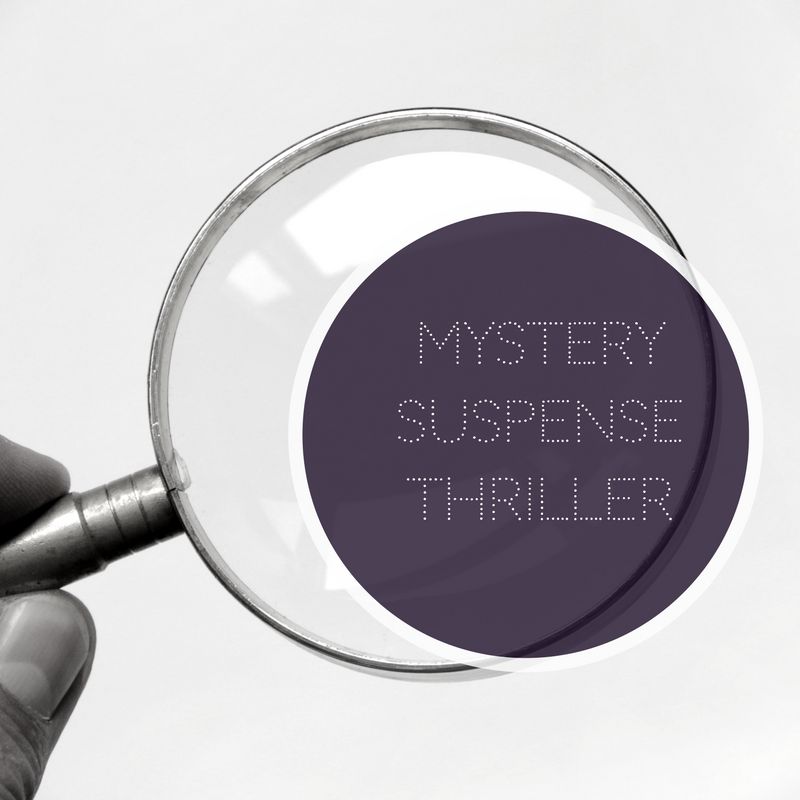Have you ridden a roller coaster and felt the exhilaration or fear of being tossed about while your feet dangled in the air? If so, then you’ve experienced some emotional elements beneficial to writing suspense. Readers don’t physically step into a metal seat and strap themselves in when selecting a suspense novel, but they still expect an adventure in which their emotions become attached to the heroine and the struggle she’s facing.
The opening sentence must capture the attention of your audience, but that’s not all. The story must continue to build with conflict and suspense, teasing your reader’s senses and emotions, and keep them wondering what will happen next.
Raise the stakes. Put your character in a situation where danger lurks and the threat of death hangs in the balance. How will your character handle imminent danger or death?
Allow your audience to feel your character’s uncertainty and fear.
- Her car breaks down on a deserted road.
- Imagine the bone-chilling emotion that grips her when a man’s silouette it appears across her window.
- What about the horror of hanging on a ledge, fingers slipping, muscles cramping, and all hope of survival fading? Will she plummet to her death on the rocks below? Is certain death her only option or will the hero find her in time to save her?
As Lisa Betz stated in her 2018 December article for Almost an Author, “You must add tension by stretching the moment.”
- Long moments of intensity builds readers’ emotions and sets their desire to keep turning the page.
- Well-written suspense secures the audience’s attention and keeps them on the edge of their seats.
- Unresolved tension keeps readers intrigued.
James Scott Bell states in his book Conflict & Suspense that there is more than one type of death that can happen in our novels.
- Physical death. Make sure your heroine wins in her conflict if she is going to die. Dragging your characters through a quagmire of near-death experiences may pique the reader’s emotions more than physical death. Some readers feel cheated when the main character dies. Physical death is not a requirement for mysteries, suspense, and thrillers. Sometimes other types of death are more frightening.
- Professional death. Your heroine may fail the test for her promised promotion and is fired instead. She feels all her experience is worthless. There must be something that could make or break your character in her line of work.
- Psychological death. This type of death stirs an array of emotions for your audience since human behavior can be so irrational one can never assume what might happen.
If you successfully take your readers on an emotional journey all the way through to the last page, most likely they’ll share the experience with other potential readers long after they’ve put the book down.
Loretta Eidson writes romantic suspense. She has won and been a finalist in several writing contests, including first place in romantic suspense in the Foundations Awards at the 2018 Blue Ridge Mountain Christian Writers Conference, a finalist in ACFW’s 2018 Genesis, was a finalist in the 2018 Fabulous Five, and a double finalist in the 2017 Daphne du Maurier Award for Excellence.
Loretta lives in North Mississippi with her husband Kenneth, a retired Memphis Police Captain. She loves salted caramel lava cake, dark chocolate, and caramel Frappuccinos.
Visit her:
Website: lorettaeidson.com
Facebok: loretta.eidson.7





3 Comments
Thanks for the advice! Your descriptions of different kinds of deaths are very helpful.
I’m glad it helped, JPC. Be sure to pick up James Scott Bell’s book Conflict & Suspense. It goes into more depth.
Great examples, Loretta. Thanks!